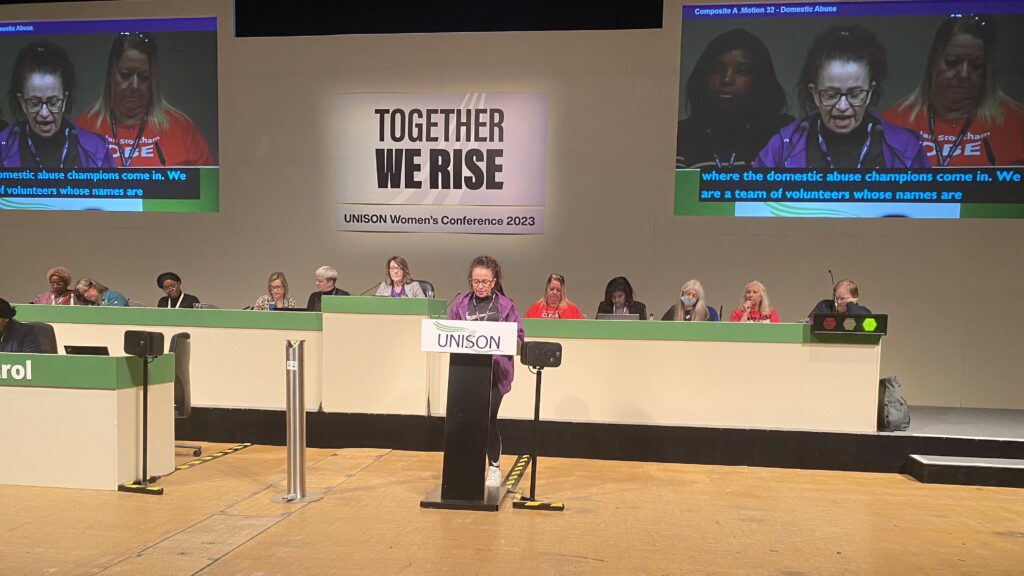Many people in relationships with abusive partners dread major footballing competitions like the World Cup. This is because they’re linked to an increase in incidents of domestic abuse.
Research by the University of Lancaster shows violent domestic abuse incidents increase by 38% when England loses football matches. Rates are also 26% higher when the team wins or draws.
Domestic abuse consists of a pattern of coercive and controlling behaviours, where one partner seeks to hold power and control over the other’s life. It is a gendered form of abuse, predominantly perpetrated by men against women, which can combine emotional, verbal, psychological, financial, sexual or physical forms of violence.
The severity of domestic abuse can range from consistently critical comments and verbal belittling to physical violence, strangulation and rape.
For survivors of domestic abuse, international football tournaments are too often marked by anxious anticipation of violent incidents at home.
As Women’s Aid made clear during last year’s Euros: “Football doesn’t cause domestic abuse, but a big game can be the catalyst for increasing or more severe abuse”.
Domestic abuse is a workplace issue, and both trade unions and employers have a key responsibility to work together identify workers who may be experiencing domestic abuse in order to support them.
That’s why, for the start of the World Cup, UNISON is publishing revised Domestic Violence and Abuse Guidance and a new document about Ending Violence Against Women.
Throughout this World Cup, both trade union representatives and employers have a key responsibility to support any workers who are experiencing domestic abuse.
Local branch welfare officers may be the first point of contact for members who are experiencing domestic abuse and associated personal, emotional or financial difficulties.
As well as practical support like signposting victims of domestic violence to specialist services or being flexible about time off to sort out a court case or finances, employers can help tackle more deep-seated cultural attitudes that underlie misogyny and violence.
UNISON lobbied successfully for the Domestic Abuse Act 2021 to recognise that domestic abuse can have an impact in the workplace, on victims and their colleagues, and that employers and trade unions can help see the signs of abuse and help prevent it.
UNISON continues to campaign for paid leave for workers experiencing domestic abuse.
UNISON general secretary Christina McAnea said: “If you are experiencing domestic abuse, UNISON is on your side. As the UK’s biggest women’s organisation, we know that it’s a statistical reality that many of our members will experience abuse.
“If you are being controlled and abused by your partner or ex-partner, UNISON is here to support you.”
The article World Cup: Women prepare for increased domestic abuse first appeared on the UNISON National site.
